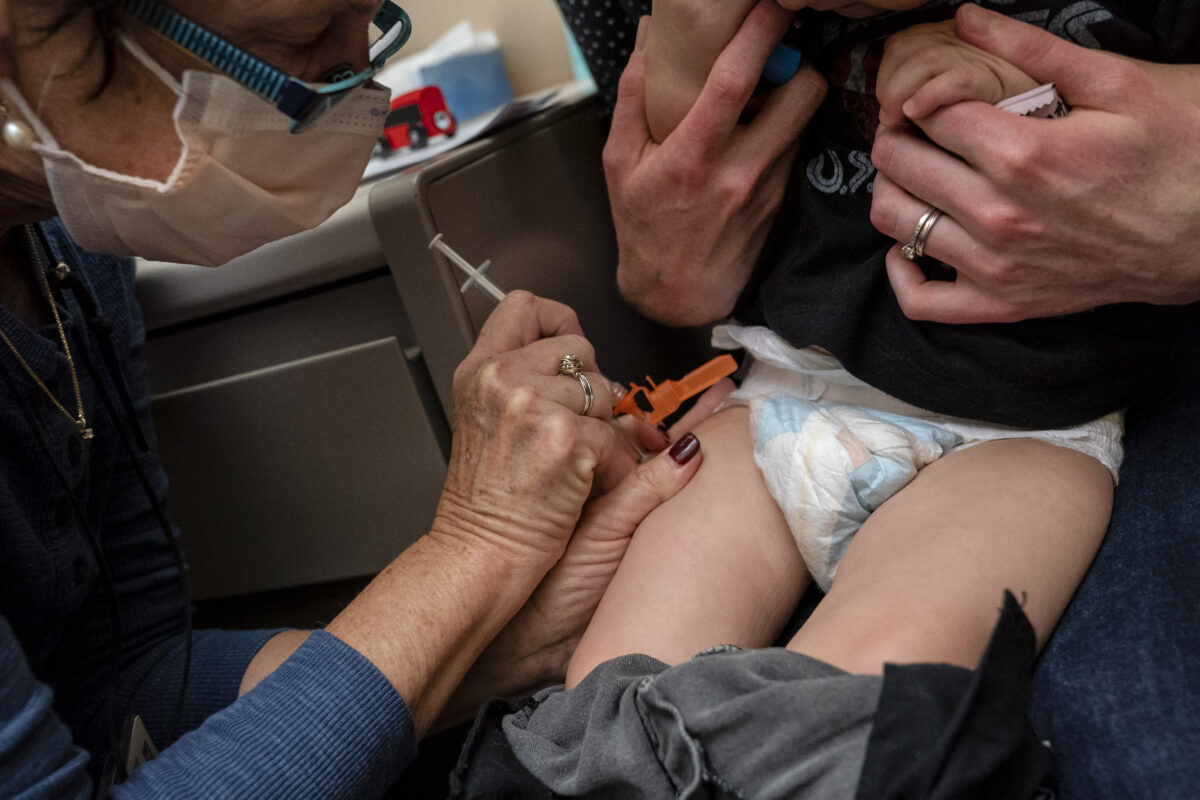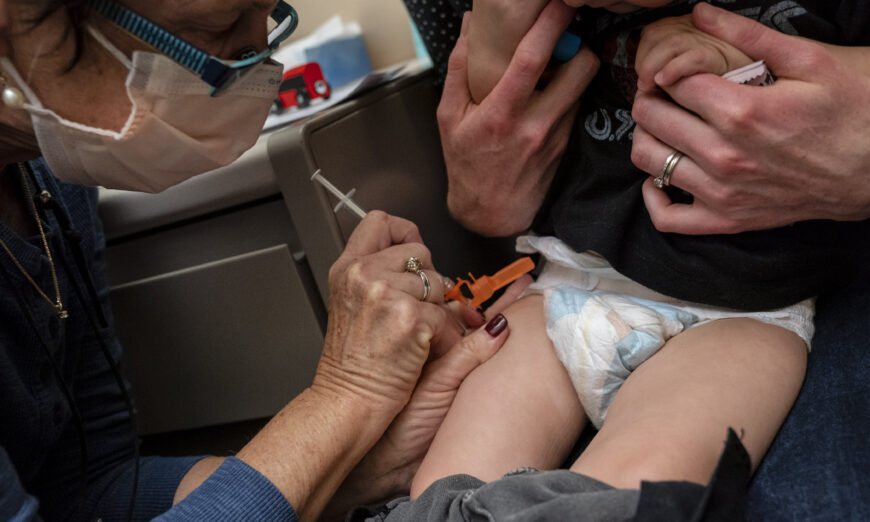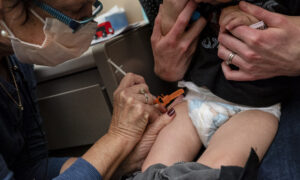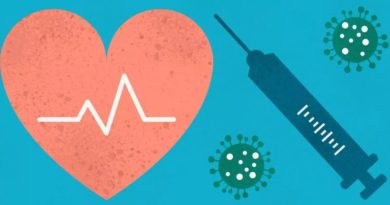More Than 100 Young Children Suffered Seizures After COVID Vaccination: Study

More than 100 young children suffered seizures after receiving a COVID-19 vaccine, according to a new study.
One hundred and four children under 6 years old suffered a seizure within 42 days of a COVID-19 shot, researchers with the U.S. Centers for Disease Control and Prevention (CDC) and other institutions found.
Others suffered strokes, blood clotting disorders, and appendicitis, the researchers said.
They analyzed health records from the Vaccine Safety Datalink, a CDC-funded network that features sites operated by Kaiser Permanente, Marshfield Clinic, Health Partners, and Denver Health.
The researchers examined events that fit one or more of 23 prespecified outcomes, including seizures and myocarditis, a form of heart inflammation, following messenger RNA COVID-19 vaccination.
The Pfizer and Moderna COVID-19 vaccines both utilize messenger RNA technology.
Children were studied if they received a vaccine dose from June 18, 2022, to March 18, 2023; 247,011 doses were administered to children under 6 during that time. Researchers examined the events that occurred within 42 days of vaccination.
The U.S. Food and Drug Administration first authorized Pfizer’s vaccine for children younger than five and Moderna’s vaccine for children younger than six on June 17, 2022, despite efficacy estimates against infection being substandard or unreliable and there being no or negative evidence of protection against severe disease.
The study was published by Pediatrics, the American Academy of Pediatrics journal, on June 6.
Type of Analysis
Eric Weintraub of the CDC and the other researchers for the new study conducted a type of examination called rapid cycle analysis. It involves comparing outcomes among the vaccinated within 21 days of a shot with outcomes among the vaccinated between 22 and 42 days of a shot. Events on the same day as vaccination were excluded.
The first window of time—1 to 21 days—is described as the “primary risk interval,” or the most likely period of time for the vaccinated to suffer adverse events. The latter time period was deemed a comparison interval.
The idea for the events that occur in the latter period is that “it’s too late for them to be associated with a vaccine,” Dr. William Schaffner, a professor of preventative medicine at Vanderbilt University who was not involved in the study but who has worked closely with the CDC, told The Epoch Times.
The researchers did not compare the vaccinated with the unvaccinated, despite indicating they would do so in the protocol (pdf) for Vaccine Safety Datalink monitoring. They have in some other studies. A request for comment to the corresponding author returned with an away message, and another author did not respond to an inquiry.
The researchers reviewed medical records for each case identified in either of the intervals, and also calculated rates to see whether any were more common in the earlier window.
What They Found
In absolute terms, researchers found a number of serious problems after vaccination, including the seizures.
The following events were detected in at least one young child one to 42 days following vaccination:
- Appendicitis
- Bell’s Palsy
- Encephalitis, myelitis, or encephalomyelitis
- Guillain-Barre syndrome
- Immune thrombocytopenia
- Kawasaki disease
- Pulmonary embolism
- Stroke, hemorrhagic
- Transverse myelitis
- Venous thromboembolism
The numbers were also higher in the initial window of time for some outcomes.
In the first 21 days, for instance, 38 Pfizer recipients experienced seizures and 23 Moderna recipients experienced seizures. In the second window, 24 Pfizer recipients experienced seizures and 19 Moderna recipients experienced seizures.
There was also one case of encephalitis, myelitis, or encephalomyelitis and one case of pulmonary embolism in the initial window, compared to zero in the next window.
More events in the initial window can indicate “an early elevated risk,” CDC officials have said.
But the researchers said the safety signal criteria were not met for any outcome after adjusting for factors such as race and sex.
“None of the outcomes met the signaling threshold,” they wrote.
Safety signals can indicate a vaccine side effect, though further research is needed to verify a signal.
Clinical trials for the vaccines for young children, run by the manufacturers, identified serious adverse events in 29 of the 3,013 children who received Pfizer’s shot and 24 out of 4,792 who received Moderna’s shot, including two cases of appendicitis, multiple seizures, and a case of Kawasaki disease. Thousands experienced adverse events, such as fever. Several dropped out of the trials after experiencing an adverse event.
The study investigators and the FDA said most of the serious adverse events were unrelated to the vaccination.
Reactions
In their conclusion, the researchers said the results of the study “can provide reassurance to clinicians, parents, and policymakers alike.”
They emphasized that no cases of myocarditis or pericarditis, two known side effects of the messenger RNA vaccines, were detected among the vaccinated within 42 days of vaccination.
Schaffner agreed. “We know that if you follow a half million children over the period of the year, some bad stuff is going to happen to some of those children,” he said.
About 550,000 children are in the Vaccine Safety Datalink (VSD) but fewer than half of them received a dose of a COVID-19 vaccine during the time period covered by the study.
Dr. Peter McCullough, a cardiologist who also reviewed the study, said he’s been alarmed at cases of post-vaccination problems among children reported in peer-reviewed studies.
“Because nearly all children have already had mild COVID-19 illness and are recovered, the COVID-19 vaccines were never medically necessary,” McCullough told The Epoch Times in an email. He said the new study and other papers show the vaccines are “unsafe for use in children.”
McCullough has called for the vaccines to be removed from the market because of the growing evidence of various health problems following vaccination. Regulators revoked the authorization for Johnson & Johnson’s vaccine this month.
Limitations of the study included not analyzing all potential safety concerns and the low uptake in the younger children, with just a quarter of the kids in the population in Vaccine Safety Datalink sites having received one or more doses of a vaccine.
Dr. Nicola Klein, one of the authors, reported receiving grants from Pfizer for COVID-19 vaccine clinical trials and she and another author reported receiving other funding from additional pharmaceutical companies such as Merck. Schaffner has also received funding from Pfizer in the past and is a liaison to the CDC.
Barbara Loe Fisher, president and co-founder of the National Vaccine Information Center, which seeks to inform parents and others about vaccine data, said future studies should be done by independent researchers who compare the vaccinated to the unvaccinated.
“The VSD is a government-maintained database that cannot be viewed by the public and is not easily accessible to independent researchers for oversight on or replication of study findings,” Fisher told The Epoch Times via email. “Where are the independent, methodologically sound COVID vaccine studies conducted by researchers who are not paid by government or industry that evaluate all morbidity and mortality outcomes in young children who do and do not receive mRNA COVID vaccines? That’s the study parents want to see done.”
This article has been archived for your research. The original version from Epoch Times can be found here.



